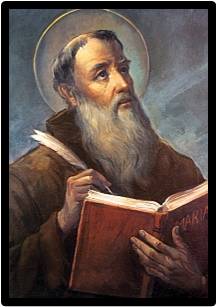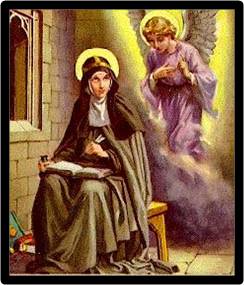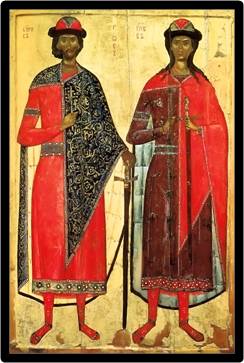JULY 21 - ST. LAWRENCE OF BRINDISI

Caesar Rossi was born at Brindisi, in Naples, Italy and was the son of Guglielmo de Rossi and Elisabetta Masella. His father died when he was only twelve. As Caesar was growing up, he felt God calling him to serve Him. He obeyed this calling and at the age of sixteen, he joined the Capuchin Franciscans taking the name Brother Lorenzo or Lawrence.
He was sent to the University of Padua where he studied theology and gained a wonderful knowledge of the Bible. Lawrence, whose first language was Italian, surprised everyone by learning six languages also. He turned out to be a brilliant student who could speak French, German, Greek, Spanish, Syriac and Hebrew.
After he was ordained a priest, he became a popular preacher as he could comfortably preach in any of the six languages he had learnt. Because he could speak Hebrew, he worked for the conversion of the Jews living in Rome. Later, St. Lawrence was sent to set-up a new house for the Franciscans in Austria. The emperor, Rudolph II, did not want them to come. But Lawrence’s tender care for victims of a plague won Emperor Rudolph to support his mission.
Then the emperor asked Lawrence to persuade the German princes to fight the Turks who were trying to wipe out Christendom (the followers of Christ). Lawrence did convince the princes to go into battle, on the condition, that he would go with them too. Lawrence agreed. But when the soldiers saw how large the Turkish army was, they wanted to quit.
So St. Lawrence putting his trust in God, rode in the lead armed only with a crucifix. The Christian soldiers took heart and fought bravely. The Turks were completely defeated. St. Lawrence received the praise which he refused, and gave glory to God for their success.
In 1602, St. Lawrence became the master general of his order. He worked hard, preached beautiful sermons and prepared many writings to spread the Good News. He went on important peace missions to Munich in Germany and Madrid in Spain. He helped the rulers see how much pain and suffering this enmity was causing and made peace between the two countries.
The strain of traveling so much and his hard life finally made St. Lawrence very sick. He died on his birthday, July 22, in 1619. The Capuchin Franciscans put together fifteen volumes of his sermons, letters and writings in 1956. And three years later, he was honored as “Apostolic Doctor of the Church” by Pope John XXIII in 1959.



